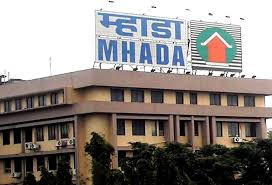In India, practically everyone aspires to live in their own home. For several people, purchasing a home is a once-in-a-lifetime experience that comes with intense emotions. Because of India’s rapidly increasing desire to own a house, the property market is growing at a never-before-seen rate, mostly in metro cities like Delhi, Bangalore, and Mumbai in the MMR region.
Thus, the property market offers a broad range of possibilities to potential homeowners. However, since real estate provides the most significant return on investment, it is entirely worth it to ask you for a hefty chunk of the amount. And meanwhile, you also need to spare enough time to follow the legal process of buying a home in India.
Therefore, if you are expecting something big, you need to plan it big. Therefore, here we have brought you a list of legal documents for buying a house to help you have one with ease.
Legal Documents for Buying A House
- Agreement to sell
It is the first paperwork made in anticipation of a property offer. It describes the property in depth and outlines the agreements between the buyer and the seller, including the agreed-upon price.
- Title deed or Sale deed
A sale deed is an important step in the legal process of buying a home in India that documents the actual transfer of ownership of a property as the sale deed or title deed. The sub-registrar’s office, under whose jurisdiction the property would fall, is where it should be registered.
- Power of Attorney
If someone is performing with the property owner’s approval, a Power of Attorney is required. It could be both general and explicit.
- Non-objection certificates
It is crucial to request that the developer submit copies of several NOCs that require approval from multiple authorities, just as the Sewage Board, Pollution Board, Environment Department, Traffic and Coordination Department, and so forth. This defines the “implication of objection” for the property’s evolution.
- Occupancy Certificate
Following the creation of a building, the municipal enterprise issues an occupancy certificate to determine that it was built following a valid agreement and that it is suitable for use.
- Tax Receipt & Bill
As per the property tax documents, the former owner or occupant had paid for all the expenses, and none had been left unpaid. Additionally, they determine the property’s lawful standing, making it an important piece of proof.
- Encumbrance certificate
Make sure the property isn’t mortgaged prior to making an offer. If the property is mortgaged, the owner needs to pay off any outstanding debts before making a sale. The office of the sub-registrar is where you can obtain an encumbrance certificate.
- Khata certificate:
This document, which goes by different names in different states, offers proof that the property is listed in the local municipal records.
- Bank statement if loan outstands
It is safe to gather the statements relating to the advance if some loan is noted on the property being bought to ensure complete honesty in this case.
- Sanctioned building plans by statutory authority
This is done to ascertain that the buyers are on the lookout for any alterations from the engineer’s permitted layout.
Following the above legal checklist for new home in MMR or India, now you can seek the best properties for sale in Vashi or the top flats available Kandivali with more awareness and understanding. Besides this, you can also check out Indextap for an extensive array of multiple flats in MMR that are listed for sale and rental purposes.
Visit IndexTap for more exciting analysis and detailed information on real estate.
















